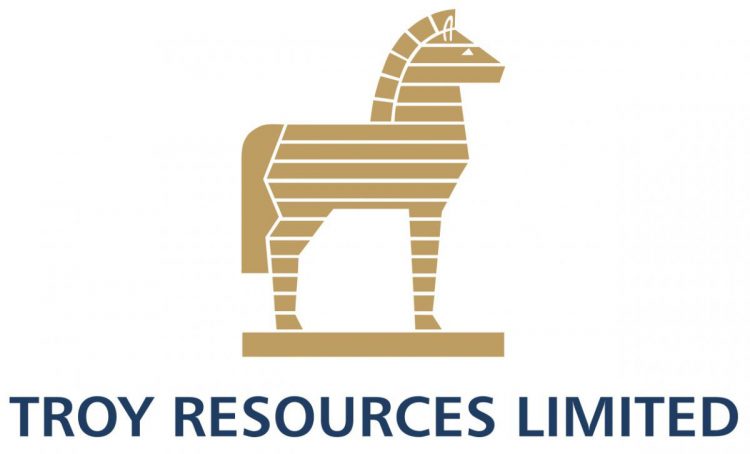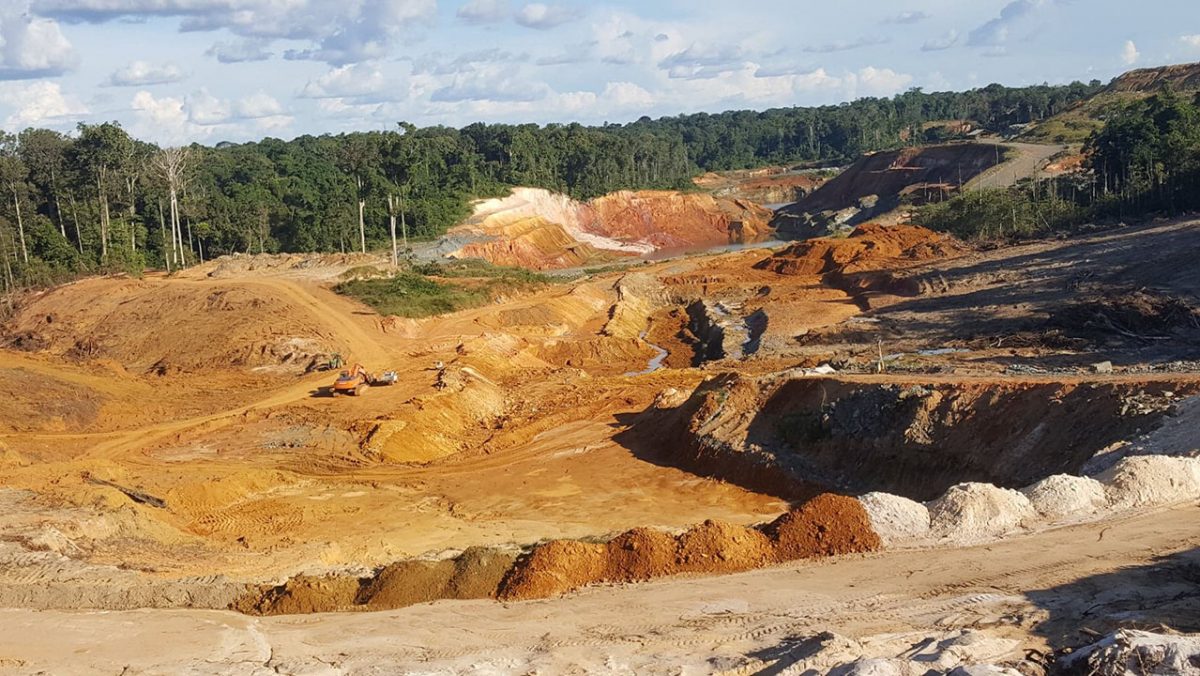
However, the company has 60 days to respond to the demand letter that was sent last month.
“They have gone and seem not coming back… But we are not letting this pass and will fight to get back what is owed…,” a top government official told the Stabroek News.
“… The GGMC, after learning that they were trying to sell out their assets, alerted the government on what was about to happen. The GGMC has not heard a word from the Australian Head Office and the local office here seems to be left on their own and in the dark,” another source said, informing that all contact with the company has been through its local representatives.
President Irfaan Ali had told this newspaper that Guyana “will pursue all legal avenues,” when he had been asked last month.
But how government oversight agencies will tackle the contractual agreements relating to the environment and the statutory mine closure plan, remains unclear.
Government had said that it would not spare penalties as matters of pollution or destruction to the environment would also face the full brunt of the law.
This newspaper last month reported that a demand letter was sent to the company, giving it 60 days to pay up some $2.6 billion it owes in royalties. Otherwise, the government would exercise “its rights of pursuing the available legal and equitable remedies under the contract and law, including but not limited to recovery of all monies owed, interests thereon, damages as compensation, restitution and termination of the agreement and licences.”
Against the background of the Troy move, the government said that it was sending a message to all foreign investors that although it welcomes their investments, it will not allow exploitation. Pointing to the newly assented to Foreign Judgments Act, government said it will not allow any foreign company to believe it can just walk away from its contractual obligations and will pursue legal avenues to retrieve this country’s due.
“While we welcome foreign investments and we believe that foreign investment is crucial to the development of our country, these investors must appreciate that we are a country governed by the rule of law and they must comply with the laws of Guyana. And more specifically, they are obliged to discharge the letter and spirit of their… duties, both to the state and to Guyanese, with whom they interact in their transactions,” Attorney General (AG) Anil Nandlall declared, as he emphasised that the Irfaan Ali government’s policy posture is one that protects Guyanese and Guyana.
In a notice, the company had announced the liquidation of its assets and sources told the Stabroek News that “the company has basically shuttered its Guyana operations and is waiting on the administrator to give word of the final day…”
The company still has not given the government a formal notification of its pullout. The company’s website has also not been updated since 2020.
This newspaper understands that should the 60-day notification expire, the government will begin exploring ways to trigger the Foreign Judgements (Reciprocal Enforcement Act) 2023.
According to Nandlall, the Act permits and authorises judgements and orders emanating from courts in Guyana to be enforced in any jurisdiction to which it applies – including Australia – and vice versa.
The law applies to some 60 countries including every Commonwealth country, every English-speaking Caribbean territory, and other major jurisdictions including the United States and China. The AG stated, “It would also be noted that the list includes all of Guyana’s important trading partners and investors.”
Nandlall had said that the law repeals and replaces the current statutory regime with the enforcement and recognition of foreign judgements. He went on to explain that recognition means that the foreign judgement is equal to any other judgement emanating from Guyana’s courts, while enforcement means that the foreign judgement can be executed in Guyana because it is recognised as equal to a court in Guyana.
On the environmental side of the contract, it stipulates that before leaving the country, Troy Resources must legally comply with a land reclamation process and other environmental obligations, as set out by the Environmental Protection Agency.
According to the contract, Troy Resources may terminate “this agreement by giving six months written notice to the Government of Guyana and the Commission [GGMC]” provided that it “shall have the right to retract in writing its notice at any time prior to the expiry of such notice period.” The GoG has, under its rights, the entitlement to also terminate the agreement if the company breaches or defaults on any of its commitments. It said that in the case of termination, and “subject to clause 18.5 hereof, [it shall] remove and otherwise deal with its property in Guyana as provided in clause 18.6; 18.4.2, restore the areas used and damaged as provided in clause 6.4 and the ESIA” and “pay any fees due hereunder up to the time the termination becomes effective; submit complete reports and evaluations, maps, assays, samples, drilling tests and related articles to the Commission.”
Before the company is entitled to remove its property from Guyana and before any payments due to it are returned, it must “obtain from the Commission a certificate of compliance with its obligations under 18.4 hereof.” In the event of the termination of the agreement in accordance with clauses 18.1, 18.2 or 18.3, the contract says that the following provisions shall apply: “All fixed plant, equipment and other immovable assets of the `Company’ and all materials, supplies, vehicles and other moveable assets of the `Company’ shall be offered for sale at their fair market value to the Government within 30 days from the effective date of termination.
“If the Government does not accept such offer within 30 days from the date thereof, the ‘Company’ shall sell, remove or otherwise dispose of all such property prior to the expiry of 120 days after the effective date of such termination; all such property not so sold, removed or otherwise disposed of shall become the property of Guyana without charge.”
But notwithstanding the foregoing, upon termination of the agreement, “the Government may by notice to the `Company’ require the removal or destruction of any assets of the `Company’ located in the Mining Area, and if the `Company’ does not remove or destroy such assets within a period of 120 days from the date of the Government’s notice to that effect, the Government may effect such removal or destruction and the `Company’ shall assume the reasonable costs, which must have been incurred by the Government at competitive rates, of such removal or destruction.”
The contract says that “upon the termination of this Agreement, the ‘Company’ shall leave the Mining Area and everything thereon in safe condition in accordance with the closure plan as set out in the ESIA as updated and approved from time to time.”
Further it adds, “In this connection, unless the Government otherwise directs, the ‘Company’ shall in accordance with good mining industry practice, make safe all holes and excavations to the reasonable satisfaction of the government.
“In the event that the ‘Company’ fails to do so, the government may perform such acts as may be necessary to make the Mining Area safe and the ‘Company’ shall assume the reasonable costs, which must have been incurred by the government at competitive rates, of said acts.
“To the extent that the ‘Company’ complies with the terms of the Final Economic Assessment and the ESIA in the form accepted by the Commission in respect of the matters described in this clause 18.6(c), the ‘Company’ shall be deemed to have fulfilled their obligations hereunder; and (d) the ‘Company’ shall have the right to enter upon the Mining Area for the aforesaid purposes, subject to the rights of surface owners or others, for a period of one year from the effective date of termination or such longer period as the ‘Company’ may reasonably request.”
In the event that Troy Resources suspends operations under the relevant provisions of Clause 4.3 of the contract, the agreement stipulates that it “shall not be entitled to dispose, by sale or otherwise, of its Assets referred to in clause 18.6(c).”
Aspects of the agreement have been drawn from Australia, where the headquarters of Troy Resources is located.
Troy Resources had commenced major mining operations in Guyana in 2015 in a blaze of high expectations. It encountered serious difficulties in October 2019, after geologist Ryan Taylor died while working on the construction of a “bench” in a mining pit. A slippage occurred, which led to him falling and being covered by the rubble. The then APNU+AFC government caused the mine to be closed for an investigation and hundreds of workers were laid off. In November last year, Troy Resources had announced plans to return to gold mining and production at its Smarts underground site in the fourth quarter of this year and had said that it was in the preparatory phase of its resumption timeline. The Australian mining company had also notified that it was revising its business model and was looking at an immediate capital investment of US$10 million for its Karouni operations.





